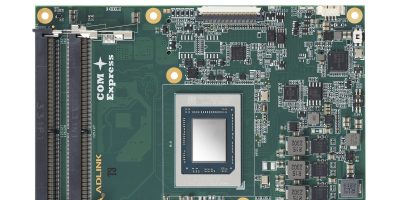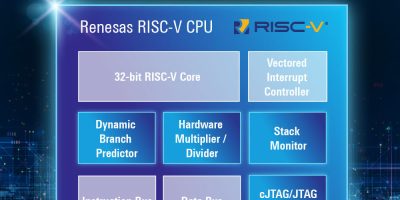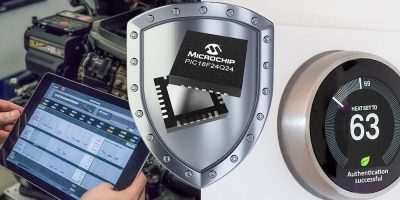At Trustech, the tradeshow for innovative payment and identification solutions, Infineon will present the latest member of the Tegrion family, which accelerates future-proof ID applications. Infineon’s mini airport booth will also feature the world’s first PQC-enabled ePassport demonstrator. In addition, visitors can experience the convenience of seamless payment with Secora Pay X, which will be demonstrated in a pop-up manicure salon for fingernails suitable for contactless payment.
The Tegrion SLC26G is a security controller for demanding identity and government ID applications such as ePassports, national eID and eHealth Care systems. The security controller enables customers to quickly and easily implement their operating system and the corresponding applications. Even more, the controller offers highest levels of security, speed, performance and power efficiency that are essential for government ID applications. These require permanent security throughout the life of the documents, as well as fast transaction times, for example at border control when travel documents need to be checked electronically at an eGate. For this ultra-fast contactless communication, the Tegrion SLC26G integrates Very High Bit Rates (VHBR).
In addition, the security controller is equipped with the integrated Integrity Guard 32 security architecture, which provides highest levels of security without compromising on transaction performance. The Integrity Guard 32 digital security technology, combined with the Arm® v8-M instruction set and powerful crypto accelerators, offers highest levels of protection, high communication speed and extremely low power consumption. Based on Infineon’s 28 nm technology, the Tegrion family meets even most demanding security standards and requirements.
Infineon, Bundesdruckerei GmbH and the Fraunhofer Institute for Applied and Integrated Security (AISEC) present the world’s first demonstrator for an electronic passport that meets security requirements of the quantum computing era (Post Quantum Cryptography, PQC). The demonstrator shows a solution for contactless data transmission between the ePassport and the border control terminal. The solution is based on a quantum-resistant version of the Extended Access Control (EAC) protocol and secures biometric data during authentication. The security procedures are compatible with established structures and can also implement quantum-resistant encryption.
Biometric payment cards offer a more convenient and hygienic payment experience, as cardholders can verify their identity by simply placing a finger on the card sensor and tapping the card on the terminal. This allows to make the biometric payment process faster than standard PIN-based transactions. To further improve the performance and production efficiency of biometric payment cards, Infineon is working with Fingerprints™ to develop the complete Secora Pay Bio solution. This turnkey solution comes with a pre-certified Java Card operating system including Mastercard and Visa Bio applets for cost-effective, scalable production based on state-of-the-art card manufacturing equipment. A Secora Pay Bio demo will be shown at the Infineon booth, highlighting the key requirements for a successful biometric payment card solution, including the various enrolment options.
This year, Infineon’s partner Smart Chip Switzerland will present an innovative pop-up fingernail salon at the Infineon booth, giving the public the opportunity to test the next level of payment: Brave visitors can have a specially designed inlay with Infineon’s Secora Pay X solution placed directly on their fingernail for on-the-go payment. In addition, numerous other new wearable payment devices, including rings, bracelets, key fobs and watches, will be presented in the service area of the booth. All these devices are equipped with products from the Secora Pay or Secora Connect solution families for connected IoT devices for secured payment. Based on an enhanced NFC Secure Element design, Secora Connect enables smart wearables with payment, ticketing and other applications for both battery-less operation and battery-powered devices with the lowest possible power consumption to maximize battery life for the consumer.
As cities grow, public transport operators are faced with ever-increasing passenger numbers, especially during major events such as football matches and the Olympic Games. Combined with the need for sustainability and convenience, this is creating a rapidly growing market for digital ticketing and smart mobility. However, this requires open standards for designing secured, convenient and interoperable ticketing solutions with the necessary transparency and trust.
Infineon addresses this development with Calypso move, the first secured memory for simple contactless ticketing based on the Calypso® base specification. It enables manufacturers to meet the specific requirements of any transport company or authority and to avoid the use of magnetic strips, barcodes or proprietary tickets. A Calypso move sample card will be on display at the Infineon booth at Trustech.
https://wwww.infineon.com/trustech.







